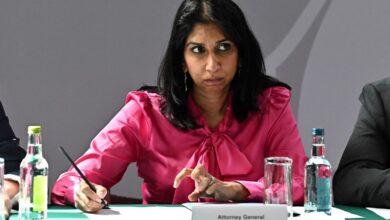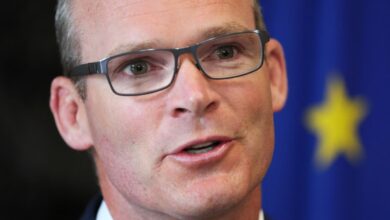Increasingly dysfunctional society and climate catastrophe leading humanity to ‘cliff edge’

Spiralling wealth inequality is leading to dysfunctional societies unable to cope with existential threats such as the climate crisis, experts have warned.
A two-year research project examining different future scenarios indicates that at present, societies around the world are at growing risk of “extreme political destabilisation”, with declines in public trust, while the climate crisis intensifies.
According to a book published by six eminent academics representing world-leading organisations, it could still be theoretically possible to stabilise global temperatures below 2C of warming since the pre-industrial era.
But that would require our species to put us on course to an end to poverty by 2050 with several ‘extraordinary turnarounds’ that break with current trends.
The book, Earth for All: A Survival Guide for Humanity, is launched by the group Earth4All – convened by the Potsdam Institute for Climate Impact Research, the Stockholm Resilience Centre, the Norwegian Business School, and the Club of Rome – an informal organisation dedicated to tackling critical world issues.
The authors said the research sets out what major economic systems change would mean for civilisation and proposes the necessary steps which they say could provide a framework for a fair, just, and affordable economic transformation.
“We are standing on a cliff edge,” said Jorgen Randers, one of the six authors of Earth for All and co-author of The Limits to Growth – a 1972 book widely credited with influencing modern environmental action.
“In the next 50 years, the current economic system will drive up social tensions and drive down wellbeing. We can already see how inequality is destabilising people and the planet.”
“Unless there is truly extraordinary action to redistribute wealth, things will get significantly worse. We are already sowing the seeds for regional collapse.
“Societies are creating vicious cycles where rising social tensions, that are exacerbated by climate breakdown, will continue to lead to a decline in trust.
“This risks an explosive combination of extreme political destabilisation and economic stagnation at a time when we must do everything we can to avoid climate catastrophes.”
The authors said the timing of the book’s release is important, with just over two months to go until the UN’s Cop27 climate summit in Egypt, where climate finance will be one of the key subjects global leaders will grapple with.
“Do we want to create the first trillionaire or do we want to create functional, fair democratic societies?” asked Sandrine Dixson-Declève, one of the authors and co-president of the Club of Rome.
“Our economic and financial systems are broken, and we are reaching dangerous levels of inequality.
“Ultimately, Earth for All is about building societies that value prosperity for all rather than profit for the few on a finite planet fit for the 21st century. Let’s be clear, a more equal society benefits everyone, even the very rich.”
To highlight what is at stake, the book explores two scenarios – both beginning in 1980 and ending in 2100.
These scenarios are entitled “Too Little, Too Late” and “The Giant Leap”, and explore how population, economies, resource use, pollution, wellbeing and social tensions might change over what is left of this century, based on decisions made this decade.
In the “Too Little, Too Late” scenario the world continues with the economic policies from the last forty years.
While GDP continues to grow, the rich get richer while the poor fall farther behind, creating extreme inequalities and growing social tensions within and between countries. Political division and lack of trust make it increasingly difficult to address climate and ecological risks.





